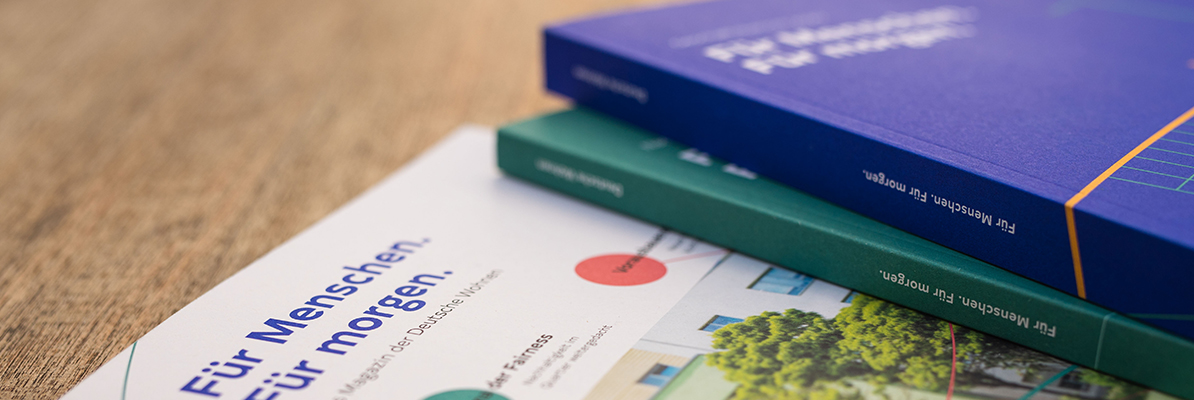
News
03/30/2009
Deutsche Wohnen AG publishes 2008 financial results
Frankfurt am Main, 30. March 2009: With the publication of the 2008 financial results Deutsche Wohnen AG is presenting the first complete business year since its merger with Berliner GEHAG GmbH. The merger of two, equally large residential property companies, which came under intense criticism by specialists, has had to prove itself in an exceptionally challenging economic environment. Eighteen months after the formal merger Germany's second-largest, SDAX-listed residential property company can look back on an extremely successful first year.
Michael Zahn, CEO: '2008 was a real cavalry charge! What we have gone through in an incredibly short time and in this business climate, following the merger of Deutsche Wohnen and GEHAG, has taken us to the very limits of our strength. But today we can announce with good reason and with pride: It was worth it! The figures which we publish today for 2008 are a good argument for this, as are the efficiency of the new company structure and the efficiency of the employees in this new structure. And last but not least, the business development of our company in an increasingly difficult economic and financial environment is a good argument that it has all been worth it.'
In 2008 Deutsche Wohnen was able to
» increase the return on residential property management by 9.2% to €147.8 million;
contributing factors were
- a reduction of the vacancy rate in the total housing stock by 12% to 5.9%, and even, in the core portfolio, by 19% to under 4%,
- an increase in net rental income by 7% to €188.5 million,
- a raising of the average rent by 4.1% to €5.09;
» almost triple earnings from sales compared to the previous year, to €13.2 million;
contributing to this were
- the sale of 573 dwellings as single units for a selling price of €1,378/m2, representing 35% over fair value,
- the sale of 1,225 dwellings en bloc for an average selling price of €741/m2 and thus slightly above fair value;
» increase the turnover on the operation of nursing homes by 12.9 % to €33.1 million;
» sell the telephone cable and data network business segment (AKF) for €30 million with a profit of €16.4 million;
» lower administration costs by 14% to just under €39 million.
The operating profit of the operational business (EBITDA) rose in total by 30% to €131 million. The improved earnings situation was used to pay back €84.3 million of borrowed funds (3.8%) and for the investment of €58.1 million (€18.26/m2) into the assets.
Despite these good returns the net result shows a negative balance after taxes of €255.9 million (= - €9.69 per share). Three special factors are primarily responsible for this:
» the revaluation of the property held as financial investments results in a nonliquidity-related negative effect on earnings of €276.5 million,
» the adjustment of our interest swaps to market value result in a charge on earnings of €32.2 million,
» the restructuring and reorganisation effect one-off costs of €24.1 million.
The largest burden on this year's net results stems from the revaluation of the real estate stock. The total housing portfolio at this point has a fair market value of €2,809 million (= €881/m2), a 13.7x multiplier of the estimated rental income. Helmut Ullrich, CFO: 'In spite of improved fundamental data (higher rents and lower vacancy rates) we have adjusted the value of our portfolio in the light of possible risks, in particular the circumstances of the financial market. So the increased discounting and capitalisation interest charges lead to a portfolio value which is lower by altogether 8.7 %.'
The negatively impacted net result is in clear contrast to the extremely successful operational result. It thus does not show the true economic performance and strength of the company.
Michael Zahn adds: 'The successful and speedy integration of the two companies has significantly improved our competitive position, in that the one-off costs of the merger have been well invested. Now the task is to scale up the business model of Deutsche Wohnen. As well as consolidating the operational business and so securing a solid liquidity base, Deutsche Wohnen has to open itself to further growth. In this context we are planning to recommend to the Annual General Meeting that in this year, too, no dividend be paid. In our judgement the available liquidity should be retained for strengthening the company and thus generate a sustainable cash flow. Only such a strategy guarantees a sustainable and therefore consistent dividend policy.'
Deutsche Wohnen AG based in Frankfurt am Main is Germany's second-largest listed residential property company. Founded in 1999 the company's 26.4 million shares are quoted in the SDAX of the German Stock Exchange and the company is also tracked by the MSCI and EPRA Indices.